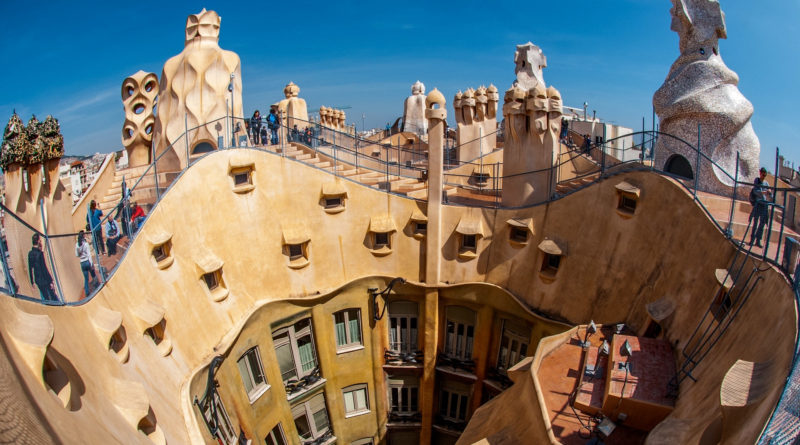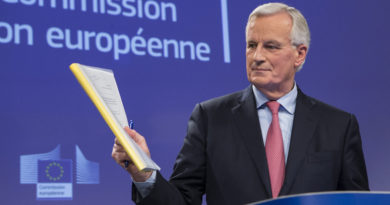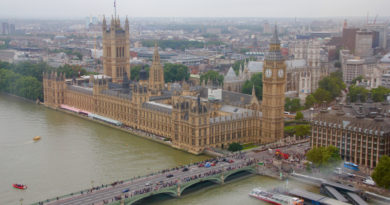How can the European Union be more meaningful for its citizens?
Can the EU still portray itself as a strong reliable institution for all Europeans? The UK’s 2017 “Brexit” vote and recent events in Catalonia have raised questions about the role and value of the European Union.
Another symptom was the alarmingly weak participation in the most recent European parliament elections, in 2014. The lack of interest is all the more worrisome when remembering that the initial idea of the EU’s founders was to bring and maintain peace and prosperity to its citizens, matters of no small importance.
However, over time the conversation turned from creating peace and prosperity to bureaucracy and bailouts enforced by national politicians and media who blame European institutions for their inefficiency and costly functioning. The EU appears to be in need of profound reform.
What’s in it for the average citizen?
Emmanuel Macron, France’s President, suggested several of such reforms, including the creation of a finance minister and a budget for the eurozone. While these proposals are positive per se, they target Europe’s elites rather than its average citizens, who often do not see what the benefit would be for them.
One prominent way to promote “European-ness” amongst all EU citizens has been education. Macron furthermore proposed to generalise Erasmus, the EU student-exchange program, by making a six-month stay abroad mandatory. But spending six months studying in another country is not sufficient to ensure that citizens feel “European” on a constant basis. Europe must remain close to them in their everyday lives and foster and nurture a sense of common identity.
Entering citizens’ living rooms
Thus, the real question to ask is how to bring the EU into the daily lives of its inhabitants. The euro which has simplified the lives of thousands of travellers across the eurozone is certainly one illustration.
While the euro has its critics, Europeans as a whole seem to be rather attached to their currency, introduced in 2002. This can be observed in the behaviour of Marine Le Pen, France’s extreme-right 2017 presidential candidate: just days before the election, she scaled back proposals to leave the euro, which were unpopular with the majority of voters. Similarly, the removal of cellular roaming charges this year has made the crossing of EU borders easier. But, as in the case of Erasmus, both examples only apply to travellers and cross-border commuters.
If you think of it, there are only very few moments during which Europe actually enters its citizens’ living rooms such as the Eurovision Song Contest or the European soccer championship.
During these events, however, European nations compete against each other, sing their national anthems and wave their national flags, which leads rather to the opposite of the creation of a European identity. Instead of only French, German, and Italian teams, one could image the creation of a European team also participating in the very same competitions. Thus, EU nations could additionally cheer for their European team.
Moreover, one could also envision the creation of media content which enters homes across Europe via television or the Internet. Thus the EU could strongly encourage the production of movies which induce a feeling of common identity. Examples are films such as the well-known L’Auberge espagnole, released in 2002.
Several further possibilities for European media content exist. Imagine for example the development of a show titled “Europe’s Got Talent” similar to the successful show “Britain’s Got Talent,” which would showcase what Europe has to offer instead of endorsing national giftedness.
Such a programme should appear on a real trans-EU mass media channel funded by the EU and targeting the average family and citizen. It would host major blockbusters, popular series, sports events, and obviously the aforementioned European media content. People would want to make such a channel number 1 on their remote controls and not have it take up one of the double-digit spaces.
An EU Commissioner for Happiness
The question remains who should take care of such endeavours which make the discourse about the EU positive and accessible to its average citizen. One possibility would be the creation of a Commissioner for Happiness. Such a role already exists in, for example, some business schools in the form of a “Dean for Happiness” in charge of making students smile and proud of belonging to the school’s community.
Bhutan, the Buddhist country in the Himalayas, has a Secretary of Gross National Happiness whose task is to monitor changes in the mood of its inhabitants. In the same way, the EU’s Happiness Commissioner would foster a sentiment of pride among its citizens through listening and responding to their concerns, as well as providing them with content presenting Europe in an enjoyable and engaging manner.
European identity as a question of perspective
As highlighted above, voter turnout in the latest elections of the European Parliament was fragile. Looking more closely, participation in member states that had not joined the EU before 2004 was the weakest.
It seems that different members are at different stages in their evolution toward a European identity. Germany, for example, is a Europhile country with a rather strong attachment to Europe – certainly a result of Germans not being proud of their national identity after World War II. In the case of Spain and Portugal, Europe provided a possibility to reposition their national identities with the introduction of democracy after long periods of dictatorship.
However, member countries entering the EU just 10 years after escaping the grip of the Soviet Union might have felt deprived of their just-gained freedom. In the end, the development of a European identity is a question of perspective.
![]() Europe accounts for maximum cultural diversity within a minimum geographical distance. This diversity needs to be considered when promoting a common European identity. Europe needs to be brought to its (average) citizens in a fun and entertaining manner. Europe needs its own Commissioner for Happiness.
Europe accounts for maximum cultural diversity within a minimum geographical distance. This diversity needs to be considered when promoting a common European identity. Europe needs to be brought to its (average) citizens in a fun and entertaining manner. Europe needs its own Commissioner for Happiness.
Andreas Kaplan, Rector, ESCP Europe. This article was originally published on The Conversation. Read the original article. Photo via Pixabay.




